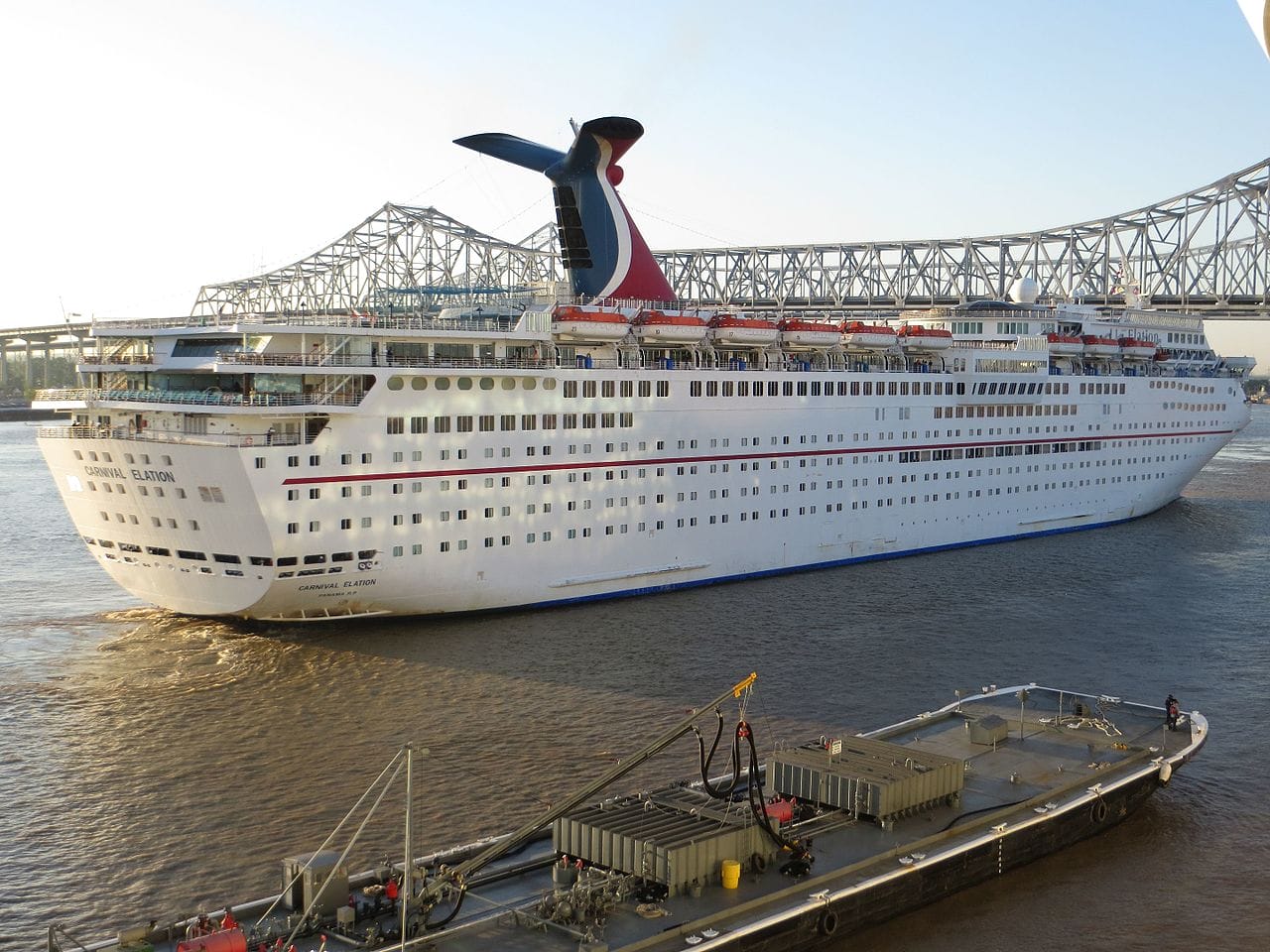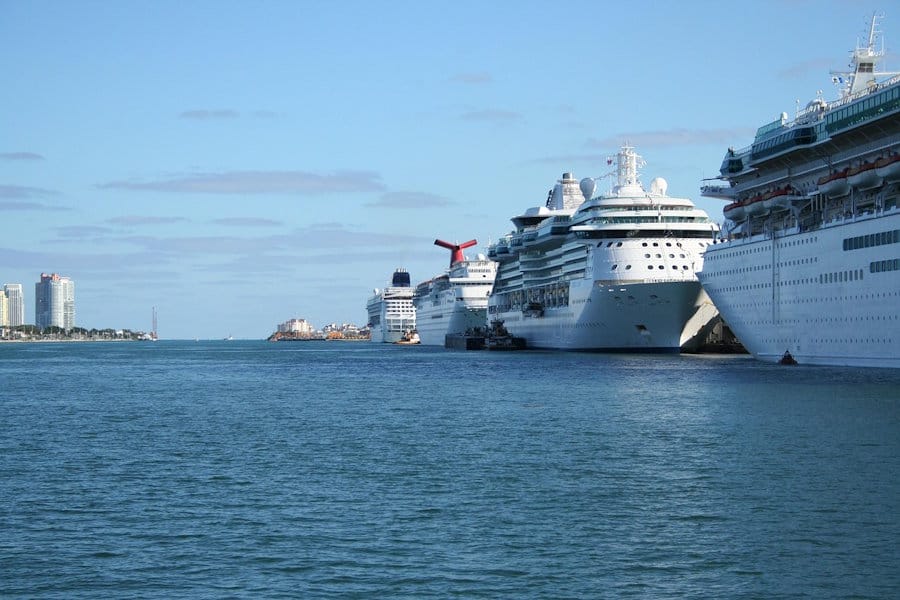Home » Do cruise ships have doctors onboard?
Do cruise ships have doctors onboard?
Updated December 6th, 2025
Yes, most large cruise ships have doctors on board at all times, working 4 or 6 month contracts with the cruise line. In addition to doctors, the ship is also staffed with other medical personnel who can assist during an emergency.
Introduction to Onboard Medical Care
Cruise ships, often likened to floating cities, provide a wealth of amenities, from gourmet dining to vibrant entertainment. A vital component of life at sea is onboard medical care. With thousands of passengers and crew aboard, health issues are inevitable.
These range from minor scrapes to critical emergencies. Cruise lines like Royal Caribbean and Carnival prioritize well-equipped medical facilities and skilled staff to ensure safety and well-being for all on board.
Besides medical needs, you may also be wondering, in general terms, Are Cruises Safe? Read the article to give you some insight into that question.
Onboard Medical Facilities
Modern cruise ships adhere to standards set by the American College of Emergency Physicians (ACEP) and the Cruise Lines International Association (CLIA). These facilities are not full hospitals but resemble urgent care or walk-in clinics on land.
Located on lower decks, away from busy areas, they feature waiting rooms and require medical history forms, similar to a doctor’s office.
Equipped with modern tools like defibrillators, X-ray machines, ECG monitors, ventilators, and small laboratories, they handle common issues such as respiratory infections, gastrointestinal problems, minor fractures, cuts, and burns.
For serious emergencies like heart attacks or strokes, medical centers stabilize patients until advanced care is available, ensuring prompt and effective responses.
Doctors and Medical Staff
Cruise lines employ highly trained professionals. Doctors, often with emergency room experience, are well-suited for frequent onboard emergencies. Depending on the ship’s size, there are typically two to three licensed doctors and three to five licensed nurses serving passengers and crew.
Cruise lines catering to children under 12 ensure at least one physician has pediatric training with emergency expertise. Doctors require several years of post-graduate experience in trauma or acute care and certification in advanced life support.
Nurses bring diverse healthcare experience and emergency training. This robust team ensures comprehensive medical support for various scenarios.
Scope of Medical Services
Medical centers address a broad spectrum of health concerns. They treat minor ailments like colds, seasickness, or small injuries. For severe conditions, such as heart attacks or trauma, staff stabilize patients and coordinate with port authorities for medical evacuation by sea or air, often involving the Coast Guard or local hospitals.
Ships stock emergency medications, oxygen, and blood pressure monitors. For passengers with chronic conditions, medical teams assist with insulin administration, medication management, or routine checks.
Telemedicine services enable consultations with onshore specialists, enhancing care capabilities. This ensures diverse medical needs are met effectively.
Public Health Management
Medical staff are crucial in managing public health. Outbreaks like norovirus or respiratory infections spread quickly in a ship’s enclosed environment. Staff monitor symptoms, isolate contagious passengers, and enforce sanitation measures to curb disease spread.
During the COVID-19 pandemic, protocols intensified, incorporating onboard testing, isolation cabins, and enhanced ventilation systems. Passengers with symptoms like fever, vomiting, diarrhea, or nausea should visit the medical center promptly to assess potential widespread issues like norovirus or COVID-19. These measures safeguard the health of everyone on board.
Onboard Pharmacies
Cruise ships maintain pharmacies stocked with over-the-counter medications, including painkillers, anti-inflammatory drugs, and seasickness remedies, available for a fee.
Passengers should not rely on the ship for prescription medications, as stock is limited to emergencies. Bringing sufficient personal medications is critical. Pharmacies offer convenience for minor needs but are not a substitute for planning ahead with prescription drugs.
Passengers should pack medications in carry-on bags to ensure access.
Medical Service Costs
Visiting the medical clinic incurs fees. Consultations and prescribed medications are charged to the passenger’s ship account, payable before disembarkation. Doctors, working as independent contractors, typically charge an hourly rate.
Most travel insurance providers reimburse cruise medical expenses, but passengers should confirm coverage, as many personal insurance policies exclude international travel. Verifying insurance details before departure prevents unexpected costs and ensures financial preparedness.
Hours of Operation
Medical clinics operate during specific daytime hours for routine visits. Emergency services are available 24 hours a day. This ensures passengers can access care anytime, whether for minor issues during clinic hours or urgent situations after hours.
Staff remain on call to respond promptly to emergencies, providing continuous medical support throughout the voyage.
Accessibility for Wheelchair Users
Medical facilities are designed for accessibility. Clinics feature wide doorways and no-threshold entrances for wheelchair users. Waiting areas and examination rooms are spacious, allowing easy maneuvering.
Medical equipment, such as adjustable examination tables, accommodates mobility needs. Staff are trained to assist passengers with disabilities, ensuring equitable access to care. This inclusivity makes medical services accessible to all passengers, enhancing their cruise experience.
Preparing for Medical Needs
Passengers should prepare for medical needs before boarding. Pack all prescription medications in a carry-on bag, not checked luggage, to ensure immediate access. Include extras for travel delays.
A list of medications, dosages, and medical conditions aids the medical team. Passengers with chronic illnesses should contact the cruise line’s accessibility team, such as Carnival’s Guest Access Team, to arrange support. A small first-aid kit for minor issues, like bandages or antiseptics, reduces clinic visits. These steps ensure readiness for health concerns.
Travel Insurance Importance
Purchasing travel insurance is essential. It covers medical expenses, evacuations, and trip cancellations due to health issues. Onboard medical care or emergency evacuations can be costly. Insurance offers financial protection and peace of mind.
Passengers should select a policy covering international travel and cruise-specific scenarios. Reviewing terms before departure avoids surprises during emergencies. Consulting providers like Allianz Travel Insurance can clarify coverage options.
Limitations of Onboard Care
Medical centers, while well-equipped, have limitations. They cannot perform complex surgeries or provide specialized treatments requiring hospital facilities. In such cases, medical evacuations are arranged.
Passengers with serious conditions should consult their doctor before cruising and confirm the ship’s capabilities with the cruise line. Understanding these limitations sets realistic expectations and ensures proper planning for medical needs.
Coordinating with Onshore Facilities
For advanced care, medical staff coordinate with onshore hospitals. Near ports, transportation to local hospitals is arranged. At sea, helicopter evacuations may be necessary, often involving the Coast Guard.
The medical team communicates with port authorities to ensure smooth transfers. Passengers should carry contact information for their primary care provider to facilitate coordination. This ensures seamless transitions to specialized care when needed.
Health Tips for Passengers
Passengers can stay healthy with proactive measures. Wash hands frequently to prevent infections. Use hand sanitizers available throughout the ship. Stay hydrated and eat balanced meals to avoid gastrointestinal issues.
For seasickness, consult the medical team for remedies or use motion sickness bands. Avoid overexertion during activities to prevent injuries. These habits minimize medical visits and enhance the cruise experience.
Emergency Preparedness
Cruise ships are equipped for emergencies beyond medical care. Crew members are trained in first aid and evacuation procedures. Lifeboats and safety drills ensure passenger preparedness.
Medical staff brief passengers on emergency protocols during muster drills. Passengers should familiarize themselves with the ship’s layout and locate the medical center early in the cruise. This knowledge enhances safety and confidence during the voyage.
Supporting Chronic Conditions
Passengers with chronic conditions receive tailored support. Medical staff can store medications requiring refrigeration, such as insulin. Routine monitoring, like blood pressure checks, is available.
Passengers should inform the medical team of specific needs upon boarding. Pre-cruise consultations with the cruise line ensure accommodations, such as dietary adjustments or mobility aids, are in place. This personalized care supports a comfortable journey.
Mental Health Support
Cruise ships increasingly address mental health. Some offer counseling services for stress or anxiety, often via telemedicine. Medical staff can provide referrals to onshore mental health professionals if needed.
Passengers experiencing emotional distress should visit the medical center for support. This holistic approach ensures all aspects of well-being are addressed during the cruise.
Family and Pediatric Care
Cruise lines catering to families prioritize pediatric care. Ships with children’s programs, like Disney Cruise Line, ensure pediatric-trained doctors are available. Medical centers stock child-friendly medications and equipment, such as smaller bandages or nebulizers.
Parents should pack pediatric prescriptions and inform staff of allergies or conditions. This ensures young passengers receive appropriate care, making family cruises safer.
Final Thoughts
Cruise ship medical facilities are remarkably capable of managing most health needs at sea. Skilled doctors and nurses, modern equipment, and stringent public health protocols ensure safety.
Passengers should pack medications, purchase travel insurance, and report symptoms promptly. While not full hospitals, these centers provide peace of mind, allowing travelers to enjoy their voyage. With preparation and awareness, health and safety remain top priorities on a cruise.

RECENT POSTS

Discover the Cruise Ports of Eastern Canada & Quebec

Inside the Worst Cruise Lines: Lowest-Rated Ships and Why They Disappoint

Snorkeling in Cozumel: A Cruise Passenger’s Guide for Your Port Day

How to Make the Most of a Short Port Stop in Cozumel

Cruise Ship Ports in Florida

